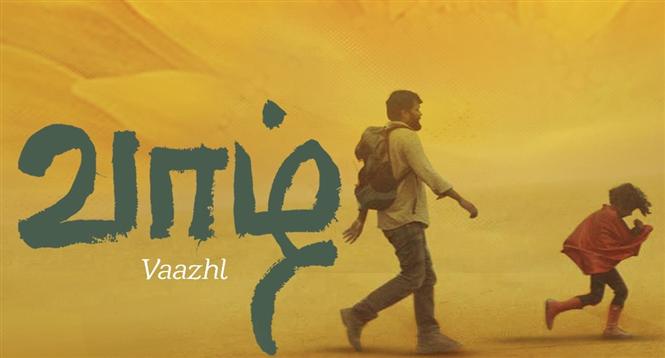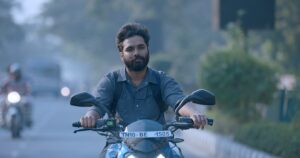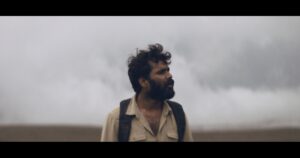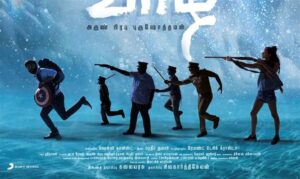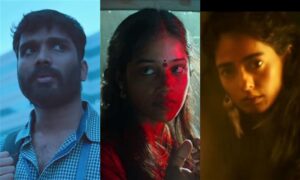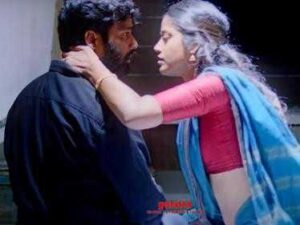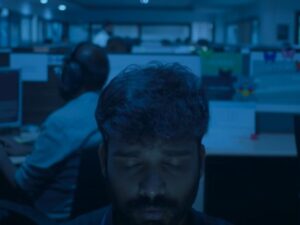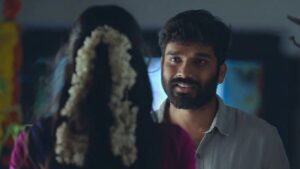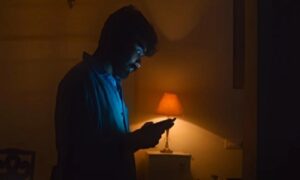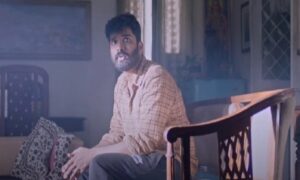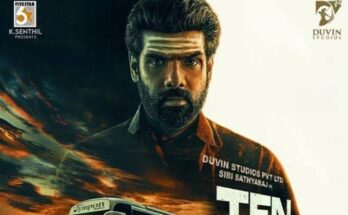Vaazhl Tamil Movie Review
Cast-;
Pradeep Anthony ,TJ Bhanu ,Diva Dhawan ,Aahrav ,SN Bhatt etc .
Crew-;
Directer – Arun Prabu Purushothaman , Written – Arun Prabu Purushothaman , Producer – Sivakarthikeyan ,
Cinematography Shelley – Calist , Editer – Raymond Derrick Crasta ,Music – Pradeep Kumar , Production Co mpani es – Sivakarthikeyan Productions & Madhuram Pictures , Distributer – SonyLIV , Release date – 16 July 2021 Running time 114 minutes , Country India ( Tamilnadu ) , Language – Tamil ,Released by – Sony Liv Etc.
Story-;
Vaazhl traces the life journey of Prakash (Pradeep Antony), an IT professional, who is fed up with his monoton ous desk job life. Situations force him to take a break from his work and travel along with Yathramma (TJ Bhanu) and Yathra (Master Aahrav). The travel takes him through a roller coaster of events that brings a difference to h is life. Who are the characters that Prakash met in the journey and how did his life change post the travel, is what Vaazhl is all about. First and foremost, director Arun Prabu Purushothaman needs to be applauded for delivering a film of this style and mood.
Arun’s taste for images, colours, music, and cuts are noteworthy and he is surely one of the unique voices of Ta mil cinema. The USP of Vaazhl is its freshness which is felt for the majority of the film. The dialogues are beau ti fully written and it is surely one of the strengths of the film. ‘Naliku… Naliku’, and ‘Namma sandhikkura ovorut harume, namma vazhkaiya maatha koodiya sakthi padachavanga’ are some of the lines that tell you that the best part of life is life itself. Vaazhl is high on experimentation and kudos to director Arun Prabu and his team for tak ing this bold effort. The interesting connection between the pigeon story and Prakash’s life was noteworthy.
Watch The Trailor-;
Movie Review-;
Arun Prabhu goes quite the distance to establish the existential crisis in Prakash’s life — the sister, the girlfriend, the mother, the manager, and the extended family are written and shot as crude caricatures. The sequence whe re his mother discovers that his sister is dating someone, and the assumptions, conclusions and interventions th at follow, are realistically ridiculous — reminiscent of Arun Prabhu’s dark humour from Aruvi, his previous film.A lot of the goodness in Vaazhl cannot be reduced to simpler terms. For example, Prakash’s family gathers around to read aloud a confiscated letter written by his sister to her secret boyfriend. It’s cringey with lines like ‘naa ful lah unakkudhaan, nee fullah enakkudhaan (I’m all yours, you’re all mine)’. The next day, when Prakash bumps in to the boyfriend, ‘nee fullah enakkudhaan’ is heard trailing off just as he appears.
It’s the kind of intricate joke that can’t be repeated; you have to experience it to get it. In another scene, we hear the song ‘nandri solla unakku vaarthai illai enakku’ when Prakash takes a leak after holding it for a really, really long time. There’s also a ridiculously funny bit involving an accidental S. Ve. Shekher impersonation. The film is full of zany, original touches.But it’s not just the jokes. There’s a scene in a beach where a character is trying to drown herself.She screams before she jumps into the water but we don’t hear it. Yet, we hear the whispered go ssip of fishermen standing about. Without any exposition, we feel her loneliness, and only because we weren’t able to hear the scream. Vaazhl is set up as an immersive experience first and as a narrative next. And the expe rience is carefully calibrated.
So, when Prakash meets Yatramma (TJ Bhanu), a cousin he’s attracted to, or when Yatramma has a serious quar rel with her husband, Arun, the emotions feel raw. Arun Prabhu makes the emotional background of the film feel just slightly fake so that the dramatic parts of the film don’t need to be overemphasized to feel real. For example, Yatramma murders Arun in a fit of rage. And we accept it, even though we don’t know much about their relatio nship. It’s because of how little the details add up.We are not expected to empathise with them as people, only see them from a distance as pesky but believable stereotypes. Prakash, himself, is not a creative soul enamoured by wanderlust either. He has no special longing or calling. At no point in any of this, do we see him wanting to le ave his situation.
He is one of the very caricatures the film mocks. In that, we don’t develop a connection with Prakash or root for his redemption.In execution, though, the film’s beats feel off. For instance, in one scene, Prakash tells Yatramma, “ennana psycho madhiri pesaringa?” (What! You’re speaking like a psychopath.) To which she replies, weeping, pleadingly that she’s not a psychopath, just a criminal of circumstance. Shot in a moving car, Prakash struggling between the road and the recent revelation, the scene is naturally unsettling. Yet, there is a comical undertone, a sudden gotcha moment, forcibly tickling the audience about Prakash’s plight. This juxtaposition of mockery over the serious crisis is a recurring theme in the film — something that rarely works, though.Pradeep, who plays Pra kash, is convincing as the easily manipulated pushover. As a voyeur enjoying Prakash’s plight, we too mock him, revel in his discomfort, anticipate his downfall.
He is regularly beaten, abused and disrespected by random strangers, all of which we laugh at. him, The strength of Vaazhl is this irreverence. It treats everything we hold sacrosanct in modern life with derision. It mocks every person and every belief. By extension, it also disregards genre conventions. It’s a thriller for a few minutes, murd er mystery after, comedy in between, travelogue later, and almost a memoir in the end.Prakash, the protag o nist of Vaazhl, is an IT employee whose code is buggy, girlfriend is nagging, sister is eloping, mother is stifling and life, overall, is without a purpose. At a funeral, he meets Yatramma, a distant cousin, who he develops feelings for. Wi thin days, he is neck-deep in her problems, driving her around scenic towns of coastal Tamilnadu.
Also joining them is, the unruly and charming son of Yaatramma (his mother is called Yatra-amma, literally, the m other of Yatra). The relationship between the three, and the eventual connection Prakash makes with Yaatra fo rms the rest of the film.Pradeep Kumar’s music plays along, tunes across genres blending and swaying effort les sly throughout. It plays a fundamental role in giving the film its timbre. Without the music, the film might have appeared confused or even disjointed. Pradeep Kumar elevates the film, confirms that its staccato nature is de liberate. But not all the boredom we experience in the second half is justified. There’s a stunt sequence outside a police station that’s tedious. Even with Pradeep Kumar’s score, the chase doesn’t have physical energy or in ven tiveness. There’s also a sequence at a hippie carnival where the historical connection between Murugan and Di onysius is hinted.
We hear a song with lyrics written by Arunagirinathar describing how Murugan advised him to just “be still (su mma iru)”, perhaps, just as the God in the Bible said ‘be still, and know that I am God’. But the atmosphere of the carnival looks intriguingly like a Bacchanalian orgy which is specifically about not being very still. And there’s Pr akash’s dream where Yatra appears as Murugan (there’s also ‘Neeya Naana’ Gopinath in it). But all this feels like detailing without also feeling relevant (it’s possible that another viewing might help). At least some of the bo re dom in the second half before the final climactic stretch, feels real.But if you’ve moved past this and learned not to worry about the momentum, there’s a fantastic visual reward near the end in the form of an image of a dense forest with waterfalls (cinematography by Shelly Calist) shown in perfect synchrony with lyrics that say ‘me ma ranthen, mei unarnthen”.
The words pun brilliantly on the two senses of mei: body and truth. Though you want to forget the one and reali ze the other to be happy, they both are denoted by the same word. Vaazhl is also something like that. What the film means to you will depend on whether you take up the challenge it sets up for you in the second half. But gra dually, as the film progresses, you see that this ‘boredom’ that the mind experiences as it chills out might not be bad. You might even argue it’s the ‘solution’ suggested by the film for our overstimulated brains. You experience the space that the film creates through its visuals and background score. As they gradually open up, you settle in to a mood instead of wanting to hook on to specific events. If you were successfully initiated through this rite of boredom, the last thirty-minute climactic stretch can actually be a low-key enlightenment experience: like, say, watching a grasshopper wash its face with just air using its feet for minutes together — pointless and totally satisfying.
This IS MY Personal Review So Please Go And Watch The Movie In Sony Liv O T T Platform
Written By- T.H.PRASAD -B4U-Ratting-4 /5
